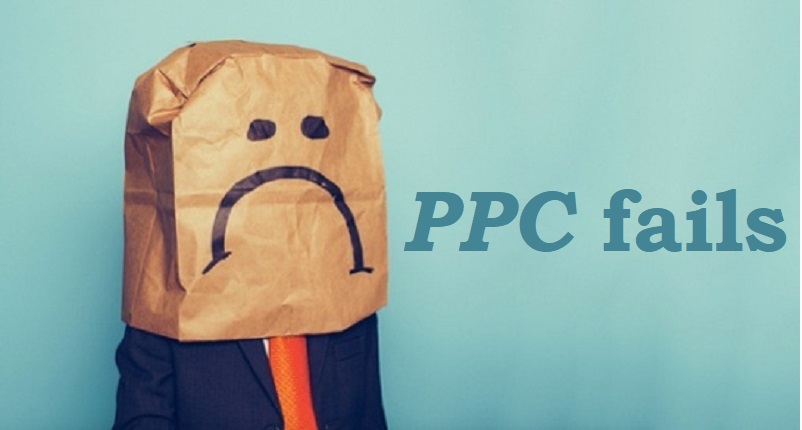PPC and search marketing are both vital to a company’s success. So, it’s amazing to see the mistakes that so many brands still make today. AdWords has added tools like upgraded URLs to make it a little easier to manage campaigns.
But glaring errors still happen – and frequently. While these mistakes can seem small – especially if a brand has a big SEM budget – each one can have a significant impact on an advertiser’s reputation and ROI. Here are a few of the most common PPC mistakes search marketers make, and some methods to address them.
Your search terms are too high-level
A common mistake for many first-time (and even experienced) search advertisers is that they start out too broadly. For example, if you’re an electrician in Boston starting out AdWords for the first time, you don’t want to go in big on the mains terms such as [electrician] and rely on city geo-targeting. Instead, be selective about your target keywords and build campaigns around specific terms such as [Electrician Arlington], or [24 callout Brookline Electrician].
The same rule applies to different verticals, including for example retail. It can be costly to start driving traffic on the term [dresses] if you’re a retailer. However, terms like [size 12 red dress] would have a higher propensity to convert. Start with these terms, then start adding more terms that could be higher up in the funnel for more awareness.
This process will install more discipline into how you measure the individual ROI of your range of keywords and bring scale when running on AdWords.
If you’re about to make the leap into broad expensive generics, then why not just target these keywords with RLSA only to build retargeting lists. It’s a more conservative step than going full throttle to make an impact in that auction.
Lazy ad management
Lazy ad copy is a big no-no in paid search. And using the same copy for all sponsored listings should be banned. Tailored ad copy offers the best way to get clicks and conversions, boosting ROI and generally making a much bigger impact than if a brand used the same ad copy for every keyword they were targeting.
Brands should always add context to their ad copy, and changing the wording for specific ads allow them to do that. For example, if a cruise line offers ads for an all-inclusive trip, they also need to add something tailored to the copy, like the customer perks, to make users want to click. For trips that aren’t all-inclusive and are designed for families with children, the cruise line should change the copy to appeal to those looking for the best deals for kids or for example entertainment.
Speaking of lazy ad management, in these two ads, the brands somehow forgot to change the auto prompt in their ad setup. This means they’re not only targeting the string “add your keywords here,” but they’ve also set the ad to autofill the headline based on the keywords. This results in a silly ad that’s unlikely to get any clicks.
Now, this could be a simple oversight, since the prompt text sometimes fails to disappear when you start typing your keywords into the box. However, marketers need to check their targeted keywords on an ongoing basis to achieve truly successful PPC management.
In addition, as Google continues to push for more hands-off automation in the AdWords workflow — through features like Dynamic Search Ads — it’s important to keep a close eye on what’s going on. These suggestions may help you automate, but they might not be the best fits to meet campaign goals and could actually hurt your standing if they don’t take the actions of your competitors into account. So advertisers, stay vigilant.
______
by Ashley Fletcher
Source: searchenginewatch.com



